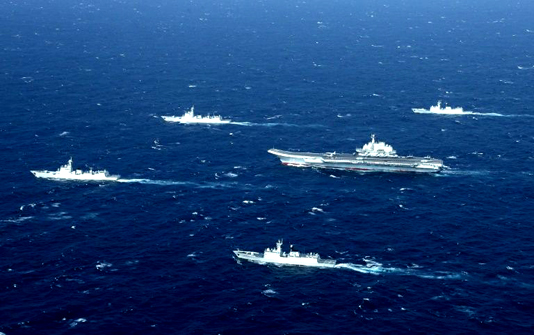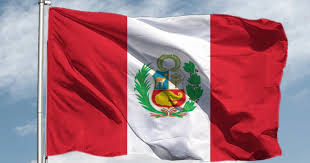KUALA LUMPUR, Aug 17 (NNN-BERNAMA) — The United States would have to ratify the United Nations Convention on the Law of the Sea (UNCLOS) if it wants to increase its engagement in international organisations as well as with other like-minded countries in relations to the South China Sea issue, says an expert in international law.
James Kraska, Chairman and Charles H. Stockton Professor of International Maritime Law in the Stockton Centre for International Law at the US Naval War College, told an annual conference on the South China Sea that it was high time for the US to join the UNCLOS especially if it is to be used as a framework within the US government and its international engagement.
“Yet, it’s not a party to the Law of The Sea Convention. Based mainly on some argument by part of the Republican side of the aisle.
“(UNCLOS is) really beneficial for the US. They are immensely important for our economy and for our military global power protection. It is just an unfortunate casualty of domestic politics,” he told the Tenth Annual South China Sea Conference, recently.
The US never ratified the treaty as it did not pass the country’s Senate. The Treaty, which came into force on Nov 16, 1994, has 168 state parties to it including major maritime powers such as Russia and China.
Kraska said international law like UNCLOS is a community process of authoritative decision and is dependent entirely on engagement, of which the US is lacking.
Meanwhile, Kraska also said that there is a good chance that the current US administration will sanction Chinese entities for the South China Sea issue, especially after the United States announced a tougher stance to Beijing’s claims in the area.
“They’ve already been talking; and as far as whether that will have a meaningful effect, of course, it should have been done in 2014 and 2015 but that’s all water under the bridge,” he said, adding that sanctions would have a better impact with support from allies and like-minded countries.
“If you can get EU on board, Japan on board…Then you can have some meaningful impact,” he said.
On July 13, US Secretary of State Mike Pompeo, in a statement, said Beijing’s claims to offshore resources across most of the South China Sea were completely unlawful.
In response to that, the Chinese Embassy in Malaysia, on July 20, said China was committed to the dual-track approach in the South China Sea issue and upheld the principle that all countries were equal in seeking to resolve the disputes peacefully through negotiation and consultation with all countries concerned.
Besides China, other claimant states in the South China Sea area are Brunei, Malaysia, the Philippines, Taiwan, and Vietnam.
Meanwhile, another expert – Robert Beckman, Head of the Ocean Law and Policy programme of the Centre for International Law at the National University of Singapore – said he can see that more countries in Southeast Asia will put more emphasis on UNCLOS with respect to resolving maritime claims in the South China Sea.
Asked on the South China Sea Code of Conduct (COC), which seeks to address and manage disputes within the South China Sea area, Beckman said while it would help in several areas, it would “certainly” not resolve the maritime claim issues.
The COC will enhance cooperation and matters of mutual concern between ASEAN and China in areas like search and rescue or protection of the marine environment.
“It will contribute to more confidence and trust in each other. But most importantly, it can deal with a framework for dealing with incidents at sea and preventing conflicts,” he added.
“But again, it has to be by consensus and China has to agree and China’s friends in ASEAN have to agree. I’m not really hopeful its going to solve all the problems. There are no magic bullets,” he added.
The first reading of the Single Draft COC Negotiating Text (SDNT) has been completed in 2019.
At the 26th ASEAN-China Senior Officials’ Consultation on July 1, 2020, senior officials of both sides welcomed the commencement of the second reading of the SDNT.
ASEAN and China are working to finish the COC negotiations by 2021.
The Tenth Annual South China Sea Conference was organised by the Center For Strategic and International Studies (CSIS), a think thank body in the US. It was hosted by CSIS’ Southeast Asia Programme and Asia Maritime Transparency Initiative.
In this edition of the monthly webinar, panelists discussed legal issues in the South China Sea, including pathways for dispute resolution and management.
Besides Kraska and Beckman, the session also featured Trang Phạm Ngọc Minh, Lecturer at the Vietnam National University.
— NNN-BERNAMA





